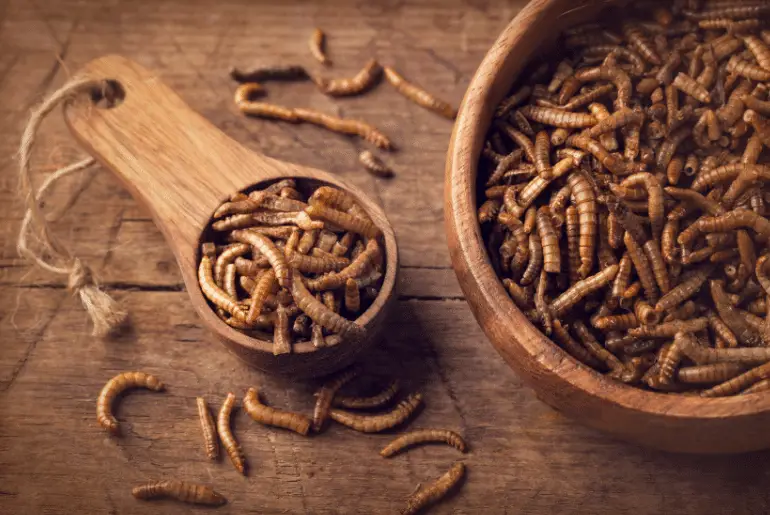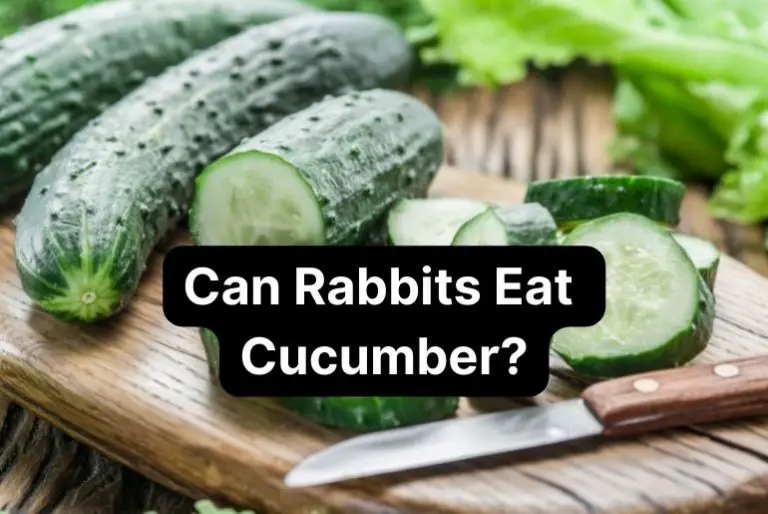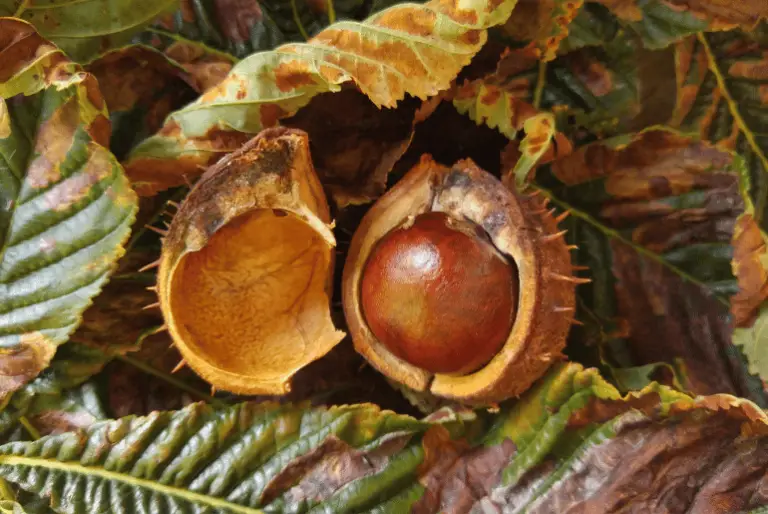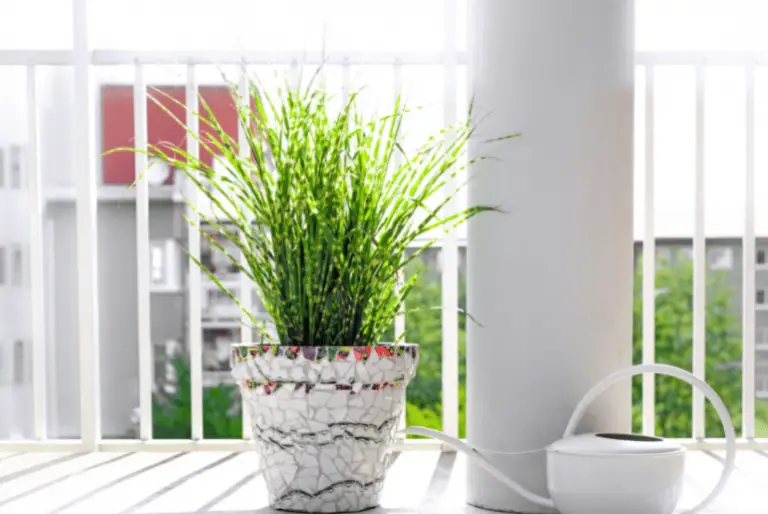Can Rabbits Eat Mealworms? (Risks & Benefits)

If you are pondering over whether to provide mealworms to your rabbit or not, it is best to set aside your concerns and read this blog post to find out the answer.
In short, rabbits can and are capable of eating mealworms. However, it is just that their digestive system is not made in a way to adapt to this kind of food. As rabbits’ diet is herbivore’s diet, it is a little difficult for them to digest worms.
It is better for your furry pets to avoid eating mealworms in huge quantities. Mealworms have plenty of protein and fat content, which are unhealthy for rabbits in excessive amounts. Your furry pet might suffer from various gastrointestinal problems by eating them. Lastly, make sure not to replace mealworms with the everyday diet of rabbits.
Contents
Do Rabbits Like To Eat Mealworms?
Well, it depends on your little furry pet. For example, some rabbits might like to eat mealworms, while others may turn away from them. It could be because their usual herbivore diet does not include mealworms.
As you know, your little furry pet gets scared easily. Due to that, some rabbits might get frightened by looking at the mealworms as they look small and move in a creepy way.
Are Mealworms Safe To Be Eaten By Rabbits?
Again, it depends on your pet. However, if we talk about it generally, mealworms are not that safe for rabbits. Giving mealworms or any meat to your furry pet can result in various digestive issues, such as:
- Diarrhea
- GI stasis
- Hepatic lipidosis
- Soft uneaten cecotropes.
Though it is not like the rabbit will die from eating one or two bites of mealworm, you should never ignore it.
If your rabbit has eaten mealworms, make sure to keep an eye on it for about 24 hours. In addition, check your furry friend for indications of any digestive trouble or behavioral changes.
Sometimes, the rabbit can start pooping immediately after consuming a specific quantity of mealworms.
What Are The Risks Of Feeding Mealworms To Rabbits?
As your little furry friends are born herbivores, they are not actually meant to absorb large quantities of mealworms.
In addition to that, they can not eat any type of meat as well. Below, we will discuss in detail the risks associated with feeding excess amounts of mealworms to the rabbits:
1. Gastrointestinal Stasis
One primary risk which comes when the furry pet eats large quantities of mealworms is Gastrointestinal stasis (GI stasis). The main reason for this is the high amounts of carbs, fats, and protein content present in mealworms.
Your rabbit will face this health issue because this low-fiber and high-fat food will cause disruption in the balanced ratio of bacteria in the furry pet’s gut. This, in turn, leads to the occurrence of GI stasis. Due to this disturbance, an unbearable gas would be released. It will result in organ failure over time and can also make the rabbit die if it is not treated properly in time.
Here is the list of GI stasis symptoms:
- Bruxism
- Depression
- Staying in a crouched position
- Decrease in appetite (anorexia)
In case if you see that your furry pet is displaying any of these signs, you have to take it to the vet clinic as soon as possible.
2. Fatty Liver Disease
As the mealworms have plenty of fat content, giving them to your furry pet for a long time will result in fatty liver disease or Hepatic Lipidosis. If we consider the usual diet of rabbits, the fat content should be about 3%, but even small amounts of mealworms have more fat.
Symptoms in rabbits that may indicate the presence of fatty liver disease:
- Gradual weight loss
- Dehydration
- No appetite or anorexia (could be instant or overtime)
- Depression
- Decrease in quantity and size of feces
- Lethargy
3. Diarrhea
Your furry pets will suffer from diarrhea when there is a sudden change in diet or if they have eaten improper food. Hence, if the rabbit has consumed large amounts of mealworms, there are high chances that it will suffer from diarrhea.
4. Soft uneaten cecotropes
The staple food of rabbits is hay and grass. So, if your furry pet eats huge quantities of mealworms in place of their usual diet, then it is likely to suffer from soft uneaten cecotropes. Rabbits will get softer cecotropes because of the plenty of protein and fat content and the absence of fiber content in mealworms.
Are Mealworms Good For Rabbits?
We will repeat it again that though rabbits can eat mealworms, it is best for them to consume their usual diet. If needed, one or two bites of mealworms are enough.
While eating grass, there is a chance that your rabbit may have eaten one or two mealworms. If your pet behaves, as usual, you do not have to worry about anything. However, if the rabbit seems to be in pain or having any gastrointestinal problems, it is best to visit the vet clinic. Also, keep in mind not to feed mealworms to your pet from now on.
Frequently Asked Questions (FAQs)
How much mealworms can rabbits eat in a day?
No, you should not feed mealworms to the rabbit every day. Give one or two small bites occasionally, but it is better to avoid them.
What to do if your rabbit has eaten mealworms?
If your furry pet ate mealworms, whether intentionally or unintentionally, observe till the next day for any unusual symptoms.
Will rabbits die after eating mealworms?
Rabbits would not diet immediately after consuming mealworms. But, if they have eaten them in huge quantities and are not treated in time, it might lead to death.
Conclusion
At last, we can conclude that rabbits can eat mealworms, but it is safe for them only in limited quantities.
However, it is better not to feed more mealworms intentionally to your furry pets as it can lead to health risks. It is because their digestive system is adapted to food like grass, hay, and specific vegetables.

![Can Rabbits Eat Pumpkin? [How Much Is Safe, Dangers and Benefits]](https://petcoddle.com/wp-content/uploads/2022/07/can-rabbits-eat-pumpkin-768x514.jpg)


